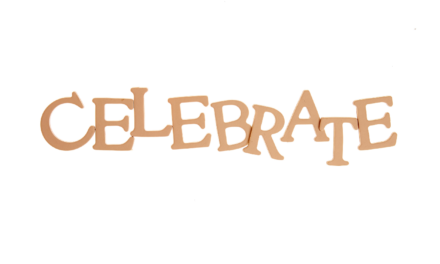Helen Keller, who became blind, deaf and mute from an early childhood illness, once wrote, “Faith is the strength by which a shattered world shall emerge into the light.” She was and is right.
Like many breast cancer survivors, my experience with a life-threatening illness taught me a lot about living in a world that’s both literally and metaphorically shattered. And it taught me even more about the role(s) that the word “faith” can play in one’s life before and long after the initial impact.
For example, today whenever I see the progress being made daily to find a cure, it renews my faith in the medical and scientific communities’ commitments to help survivors live with cancer and also overcome it. Another example is seeing the faces of my sisters participating in fund-raising efforts, support groups, and running across finish lines in all kinds of pink powered races. Each time I watch them or join them, it instills new faith in me in the healing power of compassion for others and myself.
In 2000, the year after my diagnosis, I wrote Healing Words for the Body, Mind and Spirit: 101 Words To Inspire And Affirm as a way to help people to self-heal their bodies, minds and spirits. Here is what I had to say about the word “Faith” then and what I still believe it says to all of us spiritually, emotionally and even physically now.
“I’ve read a lot of instruction manuals that tell me what other people have said about losing and finding their faith. However, I’m not so sure that it’s ever really lost. Instead, I’ve come to believe that faith just gets misplaced. Then, when something critical happens that makes us want to hold onto or keep our faith, we look around saying, “Oy! When did I last have it?” and begin frantically searching for it like a bunch of missing keys.
“For some, the search may lead to a church, synagogue, or some other spiritual home. For others, searching may mean praying harder and harder, or trying harder and harder, or looking harder and harder as though those actions could somehow make the desired outcome manifest. However, if we think about all the keys that seem to get lost right under our noses, we also know that it’s only when we give up the search that they seem to magically appear.
“Breast cancer taught me a lot about faith. First, that I must be willing to let go of outcomes, yet remain hopeful that at the end of my darkness there will be a dawn. Next, I must live in the tension of what I can physically, emotionally, and/or mentally make happen and that which I must be willing to just let happen. For me, that tension meant faithfully taking responsibility for what I could do to help self-heal myself on one hand, while simultaneously placing faith in the love, support, skill, and beneficence of my relatives, friends, doctors, and God on the other.
“The word Amen, which means, “It is so,” or, “So be it,” is found in more than 1,000 languages. Some consider this affirmation a benediction, prayer, or good wishes to be the most widely used word in human speech. From the time I found a suspicious lump in my breast until I was given a clean bill of health I discovered a missing key to my faith was three simple words patiently waiting to be found in my heart and on the tip of my tongue—So be it.”
All of the proceeds of Caren’s book Healing Words for the Body, Mind and Spirit: 101 Words To Inspire And Affirm go to breast cancer causes. Her newest book for Prevention magazine: Prevention: The Ultimate Guide to Breast Cancer: Your Essential Resource from Diagnosis to Treatment and Beyond –– came out this month.
Tired of trying to struggle through challenges like this on your own? Join Plaid for Women to connect with a multi-generational community for support, celebration and success!












